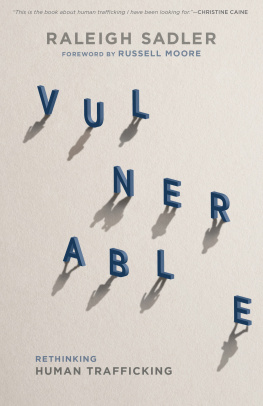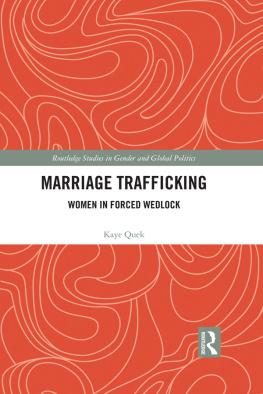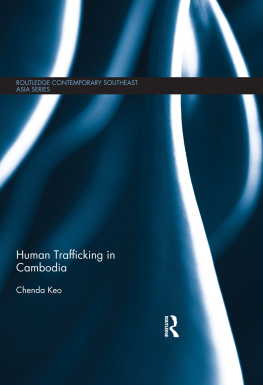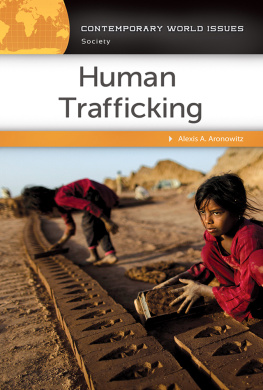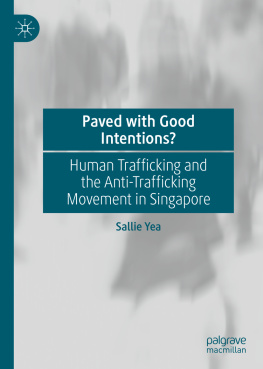From Trafficking to Terror
A panic surrounds human trafficking and terrorism. The socially constructed war on terror and war on trafficking are inextricably linked through discourses that not only conflate the two, but help perpetuate anti-Muslim sentiments. Using ethnographic data and stories, From Trafficking to Terror juxtaposes lived experience with paradigms, policies, and rescue rhetoric, and presents the need to challenge the trafficking and terror paradigm and rethink approaches to the large scale challenges these discourses have created. This book is ideal for courses on gender, labor, migration, human rights, and globalization.
Pardis Mahdavi, PhD is associate professor of anthropology at Pomona College. Her research interests include gendered labor, migration, sexuality, human rights, youth culture, transnational feminism and public health in the context of changing global and political structures. Her first book, Passionate Uprisings: Irans Sexual Revolution, was published with Stanford University Press in 2008, and her second book, Gridlock: Labor, Migration and Human Trafficking in Dubai, also Stanford University Press, is now available.
Pardis teaches courses on Medical Anthropology, Sociocultural Anthropology, Ethnographic Methods and has designed new courses entitled Sexual Politics of the Middle East and Love, Labor and the Law. She has published in the Journal of Middle East Womens Studies, Encyclopedia of Women in Islamic Cultures, Culture, Health and Sexuality, Social Identities, Comparative Studies of South Asia Africa and the Middle East, Anthropology News, and the Institute for the Study of Islam in the Modern World Review. She has received fellowships and awards from institutions such as the American Council of Learned Societies, the Woodrow Wilson International Center for Scholars, the National Drug Research Institute, the American Public Health Association, and the Society for Applied Anthropology.
Framing 21st Century Social Issues
The goal of this new, unique Series is to offer readable, teachable thinking frames on todays social problems and social issues by leading scholars. These are available for view on http://routledge.customgateway.com/routledge-social-issues.html.
For instructors teaching a wide range of courses in the social sciences, the Routledge Social Issues Collection now offers the best of both worlds: originally written short texts that provide overviews to important social issues as well as teachable excerpts from larger works previously published by Routledge and other presses.
As an instructor, click to the website to view the library and decide how to build your custom anthology and which thinking frames to assign. Students can choose to receive the assigned materials in print and/or electronic formats at an affordable price.
Available
Body Problems
Running and Living Long in a Fast-Food Society
Ben Agger
Sex, Drugs, and Death
Addressing Youth Problems in American Society
Tammy Anderson
The Stupidity Epidemic
Worrying About Students, Schools, and Americas Future
Joel Best
Empire Versus Democracy
The Triumph of Corporate and Military Power
Carl Boggs
Contentious Identities
Ethnic, Religious, and Nationalist Conflicts in Todays World
Daniel Chirot
The Future of Higher Education
Dan Clawson and Max Page
Waste and Consumption
Capitalism, the Environment, and the Life
of Things
Simonetta Falasca-Zamponi
Rapid Climate Change
Causes, Consequences, and Solutions
Scott G. McNall
The Problem of Emotions in Societies
Jonathan H. Turner
Outsourcing the Womb
Race, Class, and Gestational Surrogacy in a Global Market
France Winddance Twine
Changing Times for Black Professionals
Adia Harvey Wingfield
Why Nations Go to War
A Sociology of Military Conflict
Mark P. Worrell
How Ethical Systems Change
Eugenics, the Final Solution, Bioethics
Sheldon Ekland-Olson and Julie Beicken
How Ethical Systems Change
Abortion and Neonatal Care
Sheldon Ekland-Olson and Elyshian Aseltine
How Ethical Systems Change
Tolerable Suffering and Assisted Dying
Sheldon Ekland-Olson and Elyshian Aseltine
How Ethical Systems Change
Lynching and Capital Punishment
Sheldon Ekland-Olson and Danielle Dirks
Nuclear Family Values, Extended Family Lives
Natalia Sarkisian and Naomi Gerstel
Disposable Youth, Racialized Memories, and the Culture of Cruelty
Henry Giroux
Due Process Denied
Detentions and Deportations in the United States
Tany Golash-Boza
Oversharing
Presentation of Self in the Internet Age
Ben Agger
Foreign Remedies
What the Experience of Other Nations Can Tell Us about Next Steps in Reforming U.S. Health Care
David A. Rochefort and Kevin P. Donnelly
DIY
The Search for Control and Self-Reliance in the 21st Century
Kevin Wehr
Torture
A Sociology of Violence and Human Rights
Lisa Hajjar
Terror
Social, Political, and Economic Perspectives
Mark Worrell
Girls with Guns
Firearms, Feminism, and Militarism
France Winddance Twine
Beyond the Prison Industrial Complex
Crime and Incarceration in the 21st Century
Keven Wehr and Elyshia Aseltine
Unequal Prospects
Is Working Longer the Answer
Tay McNamara and John Williamson
Forthcoming
The Pains of Mass Imprisonment
Benjamin Fleury-Steiner and Jamie G. Longazel
The Enduring Color Line in U.S. Athletics
Krystal Beamon
Identity Problems in the Facebook Era
Daniel Trottier
First published 2014
by Routledge
711 Third Avenue, New York, NY 10017
and by Routledge
2 Park Square, Milton Park, Abingdon, Oxon OX14 4RN
Routledge is an imprint of the Taylor & Francis Group, an informa business
2014 Taylor & Francis
The right of Pardis Mahdavi to be identified as author of this work has been asserted by her in accordance with sections 77 and 78 of the Copyright, Designs and Patents Act 1988.
All rights reserved. No part of this book may be reprinted or reproduced or utilised in any form or by any electronic, mechanical, or other means, now known or hereafter invented, including photocopying and recording, or in any information storage or retrieval system, without permission in writing from the publishers.
Trademark notice: Product or corporate names may be trademarks or registered trademarks, and are used only for identification and explanation without intent to infringe.
Library of Congress Cataloging in Publication Data



